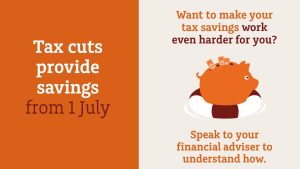Watch the cents and the dollars will take care of themselves, the old adage goes. And, with the cost of living increasing, there are a number of things you can do to save a bit here and there. It all adds up.
It doesn’t have to be a full-on modern-day replication of The Good Life (although the world conjured up by that classic British sitcom does hold a fair amount of appeal today!). That being said, if you do want to don your best 70s outfits and live a self-sufficient lifestyle, then you’ll probably do well at the moment.
So, here are eight ways you can channel your inner Tom and Barbara and save a few dollars over the coming months.
1. Grow your own vegetables
Apparently, here in Australia around 4.7m1 of us are growing our own food – and it holds a lot of appeal, too. Not only is there a strong sense of satisfaction from growing your own produce, but you can also save a decent amount on grocery bills. If you are growing your own veggies, however, be careful. Research from Macquarie University2 revealed a fifth of Australian homes’ soil might have toxic trace metal contamination. This is more likely to occur in older, painted, inner-city homes, but there’s an easy way to check. Macquarie University offers Australia’s only soil-checking service so you can make sure your veggies are safe. Visit 360dustanalysis.com for more information.
2. Check for lost money
Lost money may sound more like Treasure Island than real life, but according to the government’s ‘find unclaimed money’ site, there’s around $1.5 billion in lost shares, bank accounts and life insurance waiting to be claimed. And some of it could be yours. Checking is easy – simply visit Moneysmart, put your name in and – hopefully – bingo!
3. Make use of discounts and voucher codes
There’s no shame in using discounts and voucher codes – in fact, there’s more shame in not using them today. You’d be surprised at just how many discounts you can access via your banks, insurance companies and phone provider. From discounted gift cards – the definition of ‘free money’ – to codes offering discounts on clothes, electronic goods and pretty much everything else imaginable, you can save some serious money if you put the time in. And, if you can’t find a code through conventional means, a Google search can often turn up something useful…
4. Fuel app
If the pandemic hadn’t limited our travel, fuel costs have certainly done so now. We’re seeing unprecedented prices at the pumps, so any saving is a good one. A number of organisations – some government, some fuel retailers – have apps that enable you to see the local fuel prices at a glance. Some even allow you to lock in a price, meaning you can have some comfort knowing what to expect when you drive up to the fuel station. Check out the 7-Eleven Fuel App.
5. Budget well
Okay, so this may not have the immediate appeal of finding lost money, but it can be just as effective. Because, in essence, it’s exactly what you are doing. If you budget well, you have control over how much you’re spending and, more importantly, how much you’re saving. It’s surprising how easily things add up when you’re not on top of those outgoings, and, as the saying goes, you can’t manage what you can’t measure.
6. Select new appliances carefully
What difference does a star make? As it turns out, quite a lot when it comes to electrical appliances.. The more stars, the more energy efficient it is, and the lower the energy consumption number, the cheaper it will be to run. You can calculate the cost savings between appliances here, but one extra star on a dishwasher can make a 30 per cent difference to the running costs and a 23 per cent saving on a fridge freezer. So, with energy costs going through the roof, it’s well worth considering the star ratings when you’re next in the market for white goods.
7. Review your insurances
The renewal premiums for health insurance, car insurance – in fact, any type of insurance – will rarely go down. The reality is, you’ll only get a better price on your insurance if you switch providers – and it’s a pretty competitive market. From a few free months to a lump sum of reward points, if you spend time shopping around, you can save quite a bit. Of course, just remember to make sure you’re comparing like-for-like, and that any waiting periods – for health insurance, for example – are either waived, or you’re comfortable with them.
8. Check you’re actually using what you’re paying for
We’re living in a subscription society and pay by the month for everything from TV streaming channels to calorie-counting apps. If you don’t go through your bank statement line by line, you should. Who knows, you may still be paying for that streaming platform you haven’t watched for six months, or maybe your kids or grandchildren ‘accidentally’ signed you up for a game on your tablet.
Taking control of your day-to-day spending
Unfortunately the odds are stacked against a lottery win, however you can make a pretty significant impact on your cash flow and overall finances by taking a few of these seemingly small actions. Over time, they all add up.
[1] https://www.diggers.com.au/blogs/learn/4-7-million-australians-are-growing-their-own-food
[2] https://www.sciencedirect.com/science/article/pii/S0160412021002075







